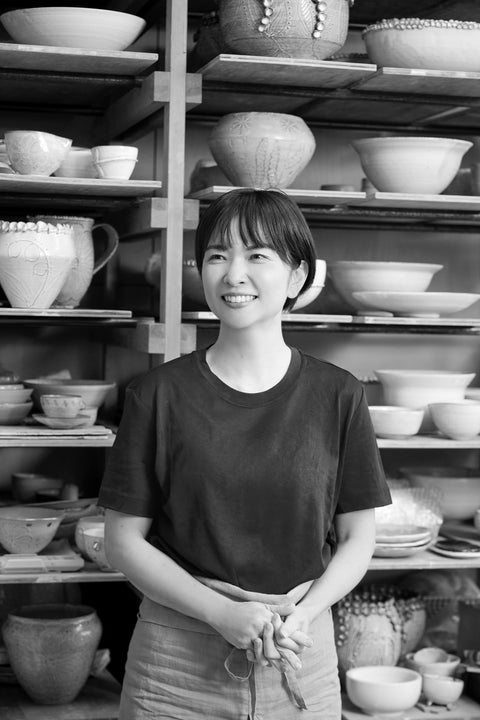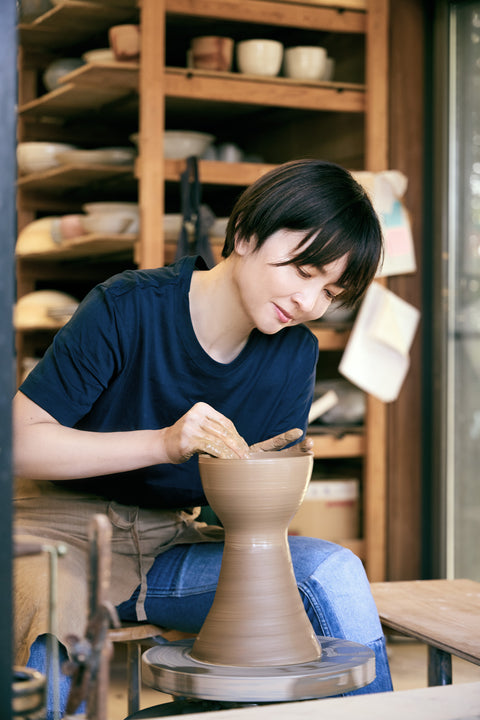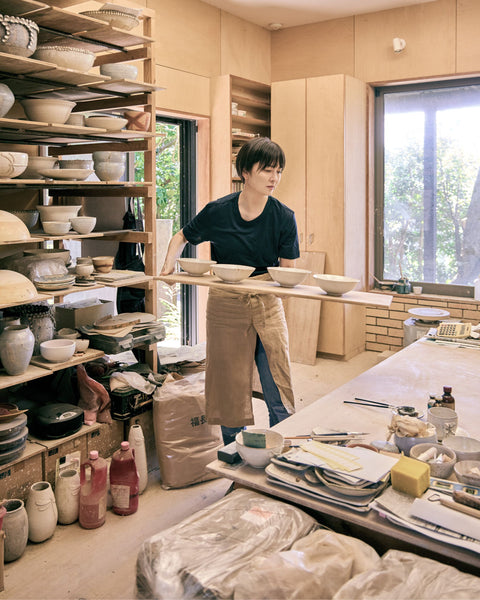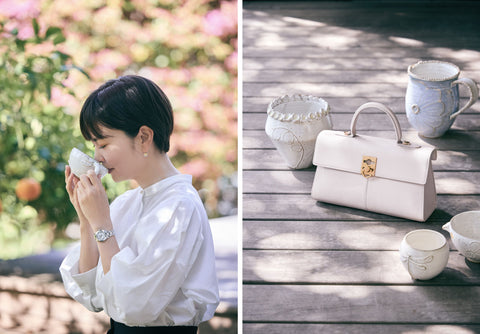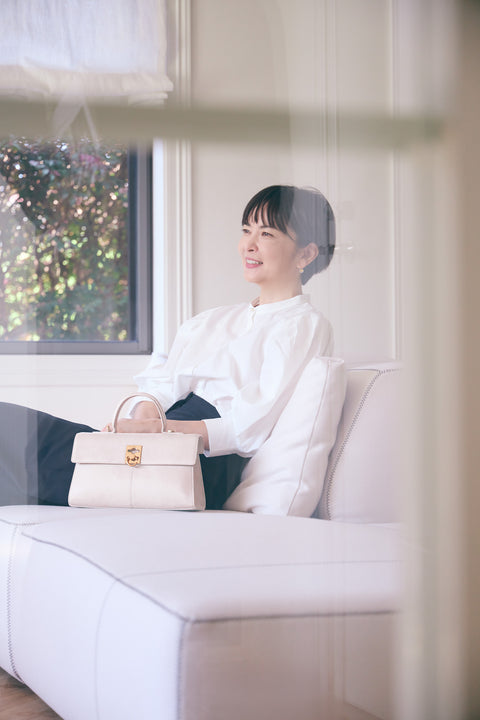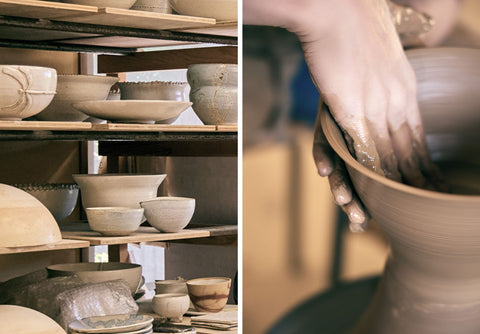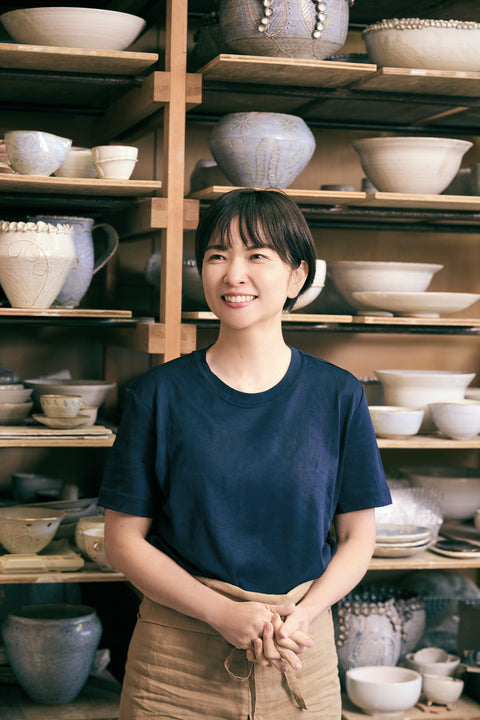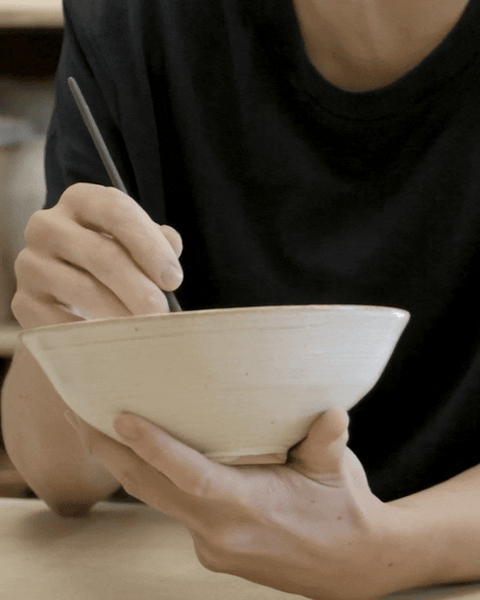In Conversation with Cafuné Women
Empowered women empower women. In celebrating women's achievements, we uplift and inspire one another. This spirit of solidarity fosters a community where shared experiences and stories fuel our growth.
In the four-part series "In Conversation with Cafuné Women", we will engage with inspirational women from diverse backgrounds around the world, delving into their journeys to success. As these women open up about their unique experiences, we hope to inspire you to embrace your own stories, foster a culture of confidence and ambition as you pursue your dreams.
About Yuko Okazaki
Yuko Okazaki is a renowned ceramic artist in Japan known for her dragonfly motif and soft white glazes. Inspired by her time at Issey Miyake, she studied under Eiichi Morita before establishing her practice.
Through significant life events, including marriage and motherhood, Yuko has remained deeply committed to her artistic journey.
Interview with Yuko Okazaki
Why did you decide to leave your job at a major fashion brand and pursue a career as a ceramic artist?
I was working in the fashion industry, but I soon realized that I was better suited for small, handcrafted work. Items that are integrated into daily life, such as clothing or tableware, are essential to our everyday routines. That is why I decided to pursue ceramics.
As a ceramic artist, how do you build confidence in your creative process?
I simply create what I personally enjoy. However, when people purchase my work or tell me they like it, that’s when I feel truly happy and recognised. It gives me a sense of validation and reassurance that my creations are resonating with others. This recognition makes all the effort worthwhile, as it confirms that the work I put into each piece has value beyond my personal enjoyment.
Has there been a female role model in your life who has inspired you or empowered you?
I admire Lucie Rie, who dedicated her life to the pursuit of ceramic creation and glaze-making. Georgia O’Keeffe is another figure I look up to, not only for her art but also for her lifestyle. These women lived with purpose, crafting art and objects with care, and their empowerment continues to inspire me.
How has your experience shaped your understanding of the meaning of empowerment?
When I first emerged as a ceramic artist around 2007, the field was still largely male-dominated, and young female artists like myself were rare. That experience shaped who I am today. As a woman, mother, wife and daughter, I believe that by following my own path, regardless of circumstances or environment, I have become a role model for others.
Are there any social causes or activities you wish to pursue in the future, such as your work with CancerX?
I have experienced cancer and undergone several rounds of chemotherapy and surgery. Despite some minor issues following my illness, I am living almost the same life as I did before my diagnosis. If my story can offer courage to others in similar situations, I would be happy. Role models are important, and I was fortunate to have the support of many during my treatment. Social change begins with small steps, and I believe it is crucial to continue taking those steps consistently.
Watch the full video to discover her unique characteristics and aesthetic.


